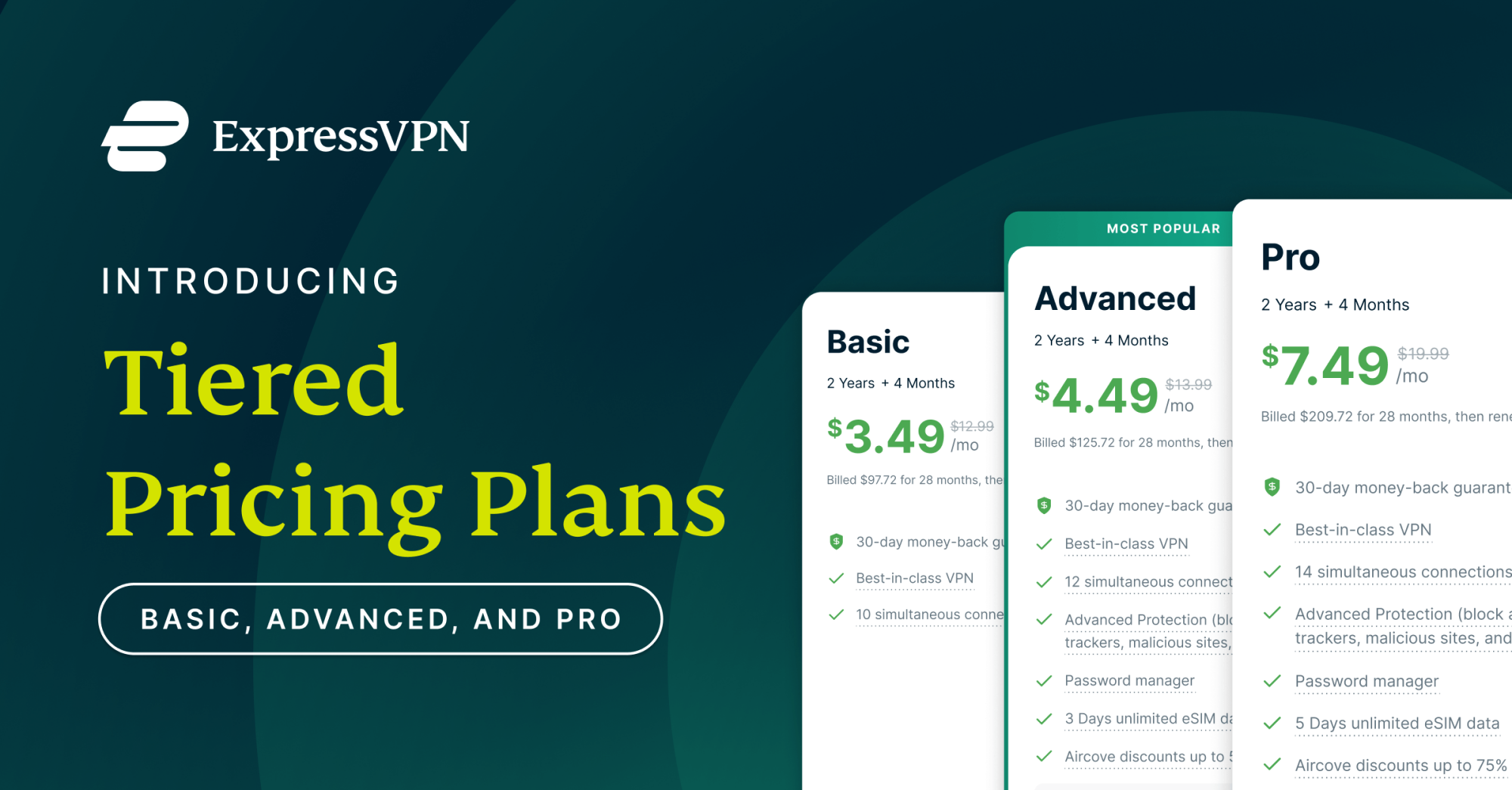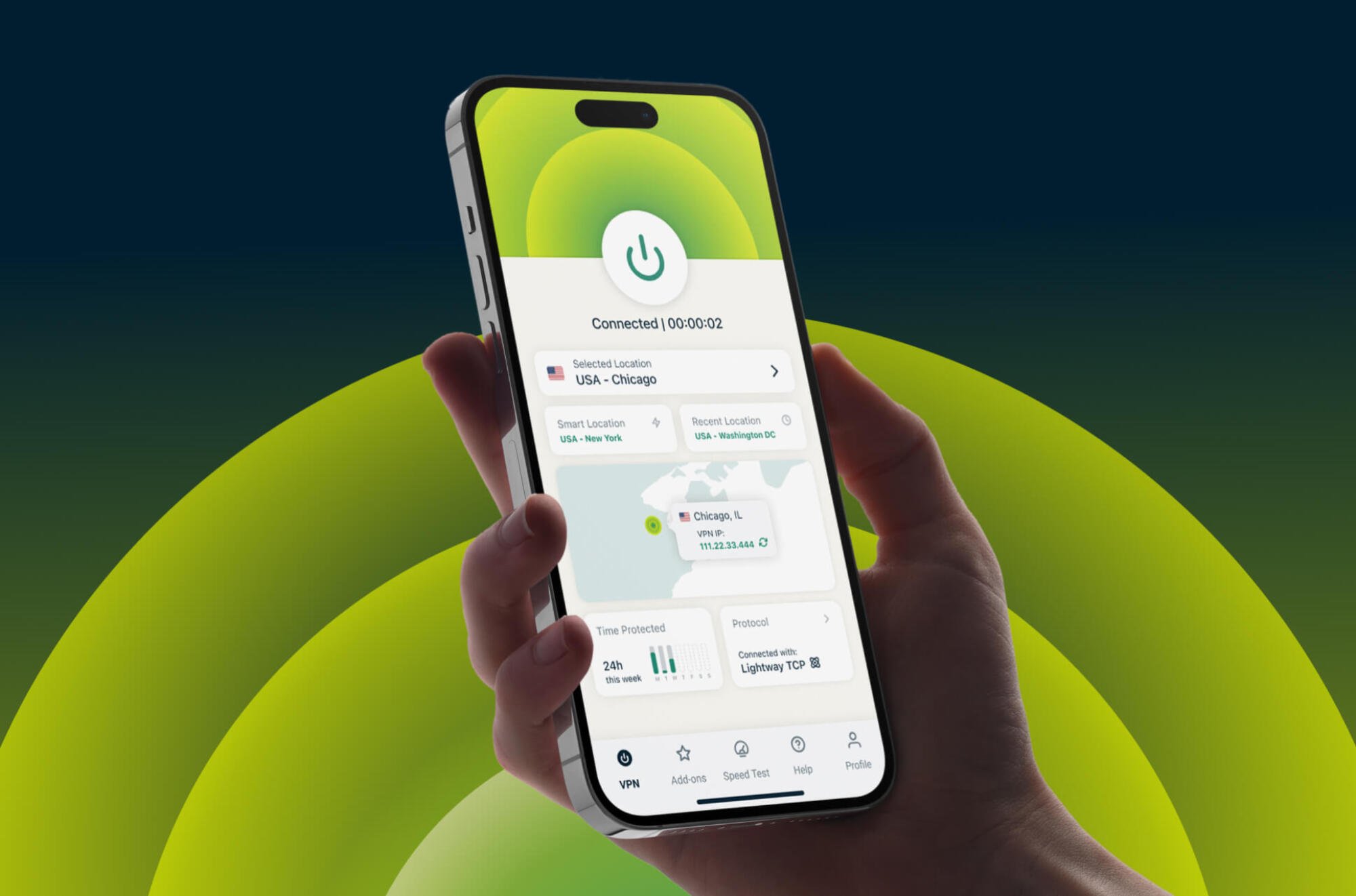
In a move it’s calling “one of the most significant changes in the company’s 16-year history,” ExpressVPN has switched to a tiered pricing structure. As of Sept. 2, the popular VPN provider now offers three types of subscriptions with varying levels of features, more simultaneous connections, and lower long-term pricing options.
ExpressVPN previously had one membership option that cost $6.67 to $12.95 per month, depending on the length of the subscription and available promotions. It was generally one of the most expensive premium VPN services available (something we knocked it for in our review).
Going forward, ExpressVPN is offering three different membership tiers starting well under $5 per month, putting it more in line with competitors like NordVPN and Surfshark. ExpressVPN has also increased its cap of eight simultaneous connections per subscription to a minimum of 10, making one plan usable across more devices.

Credit: ExpressVPN
“This marks a fundamental shift in how ExpressVPN is offered, built on the reality that the internet has changed along with your privacy needs,” the company wrote in a blog post.
The new tiers are:
-
Basic Plan: Subscribers get access to the VPN on up to 10 devices at a time. It comes with a kill switch, a tracker blocker, split tunneling on most platforms, and ExpressVPN’s Lightning protocol, which is designed for speed and efficiency. Prices range from $3.49 per month for 28 months to $12.99 on a monthly basis.
-
Advanced Plan: In addition to the VPN, users get a built-in ad blocker, a password manager, and an ID theft tool suite called “Identity Defender” that includes fraud alerts, theft protection, and a credit scanner. ExpressVPN Advanced subscribers can use the service on up to 12 devices. Prices start at $4.49 per month for 28 months and max out at $13.99 month to month. Yearly subscribers get a bonus three days of unlimited international mobile data via eSIM.
-
Pro Plan: On top of everything included in the Advanced tier, ExpressVPN Pro subscribers get a dedicated IP address, two extra Identity Defender features (a data removal tool and monthly credit reports), and up to 14 simultaneous connections. Prices range from $7.49 per month for 28 months to $19.99 per month. Long-term subscribers get five days of unlimited international mobile data via eSIM.
Advanced and Pro subscribers also receive discounts on ExpressVPN’s AirCove WiFi 6 routers, which come with its VPN pre-installed. All of the new ExpressVPN plans are covered by its existing no-logs policy and usual 30-day money-back guarantee.
Existing ExpressVPN subscribers’ plans won’t change unless they want them to, the company said. “When your renewal comes up, you’ll have the option to switch to Basic, Advanced, or Pro,” it wrote in the blog post. “But you won’t lose features you already rely on, and you won’t be downgraded without your consent.”

Credit: ExpressVPN
It’s worth noting that ExpressVPN hasn’t rolled out any new features as part of this subscription shakeup — it’s just redistributing its existing offerings. (Also, its dedicated IP is no longer an add-on that requires a separate purchase.)
It’s important to remember that these features won’t make the VPN itself any better or more customizable, but they’re nice to have if you’re trying to improve your overall online security. ExpressVPN alluded to this in its blog post: “All of our plans are built on the same foundations: speed, privacy, and trust,” it wrote. “But now you can choose how far beyond VPN you want to go.”
ExpressVPN was founded in 2009, making it one of the oldest providers on the market. It has servers in 105 countries worldwide and offers apps for Windows, Mac, Android, iOS, Apple TV, and select routers. Last month, it published its latest transparency report detailing its responses to legal requests so far this year.
Read Mashable’s full review of ExpressVPN. It was written before the new pricing tiers took effect, so we’ll update it soon.







